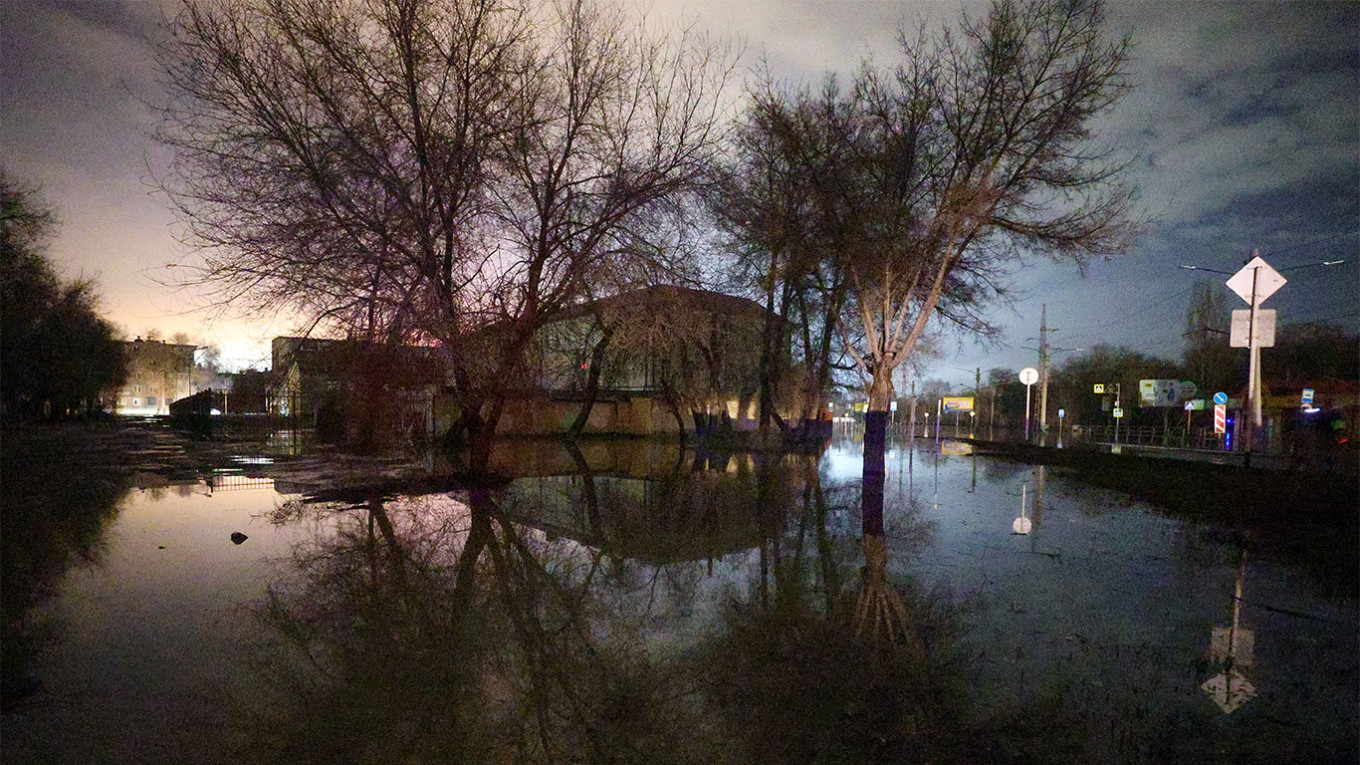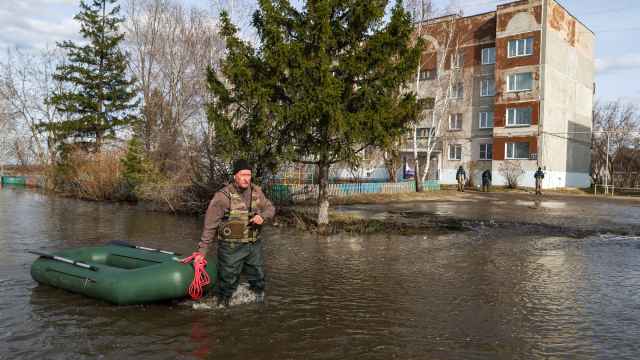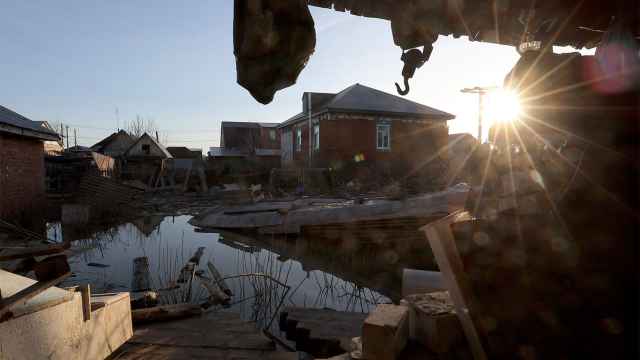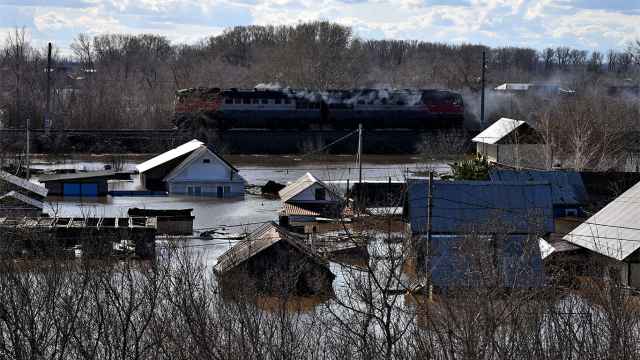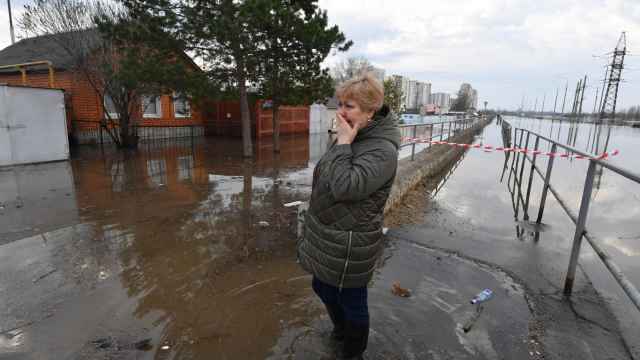The Russian city of Orenburg, near the Kazakh border, braced on Monday for flooding not seen in decades, as officials evacuated locals to escape rising rivers in the Urals and western Siberia.
Moscow declared a federal emergency on Sunday over floods in the Orenburg region, where the Ural River left much of the city of Orsk covered in water, forcing thousands to leave their homes.
The river is now reaching dangerous levels in the regional capital of Orenburg, a city of 550,000 people.
The Kremlin has also warned of "inevitable" floods in western Siberia's Kurgan and Tyumen regions.
Thousands of people have already been evacuated from flooded areas.
The Kremlin said on Monday that over 10,000 residential buildings had been flooded, mostly in the Urals, Volga area and western Siberia.
Emergency services warned of a "rise in air temperature, active snow melting and the overflow of rivers."
Much of the city of Orsk was underwater after torrential rain caused a nearby dam to burst.
Orenburg region authorities said that while the Ural River "went down by nine centimeters (3.5 inches)" in Orsk, water levels in the city of Orenburg were rising fast.
"In Orenburg, in a day there was a rise by 16 centimeters to 872 centimeters," in the water level, the regional government said.
Its Mayor Sergei Salmin told Russian television that the city "has not seen so much water" in decades.
"The highest [water] mark was in 1942. That was 946 centimeters," Salmin said.
"Since then there have been no floods. This is unprecedented."
The Kremlin has said President Vladimir Putin is being briefed on areas affected by "nature anomalies" in real-time.
On Monday, it said Putin ordered a government commission to be established on the floods.
'No time for convincing'
Orenburg Mayor Salmin said authorities had evacuated 736 people in the city, as they expect the water to rise further.
Over the weekend he warned of forced evacuations if people did not cooperate, saying: "There is no time for convincing."
Russia's weather monitor Rosgidromet said it did not expect the flood in Orenburg to peak until Wednesday and warned that many districts of the city would be affected.
The Ural River flows through Orenburg and into Kazakhstan, where President Kassym-Jomart Tokayev said the floods were one of the worst natural disasters to affect the area in decades.
After evacuating over 6,000 people in the Orenburg region, authorities also began relocating some residents of the Siberian city of Kurgan, where the Tobol River is expected to rise.
Kurgan is a city of around 300,000 people near northern Kazakhstan.
Emergency services in Kurgan said 571 people were moved away from areas expected to be flooded in what it said were "preventative evacuations."
Local authorities said reinforcements of some 100 rescuers arrived in the western Siberian region from the Urals to prepare for the floods.
Emergency authorities also warned that the Irtysh River was "very likely" to flood parts of Tobolsk, one of Russia's oldest Siberian cities.
Putin, who has been a vocal climate skeptic for much of his rule, has in recent years ordered his government to do more to prepare Russia for extreme weather events.
The country has seen severe floods and fires in recent springs and summers.
A Message from The Moscow Times:
Dear readers,
We are facing unprecedented challenges. Russia's Prosecutor General's Office has designated The Moscow Times as an "undesirable" organization, criminalizing our work and putting our staff at risk of prosecution. This follows our earlier unjust labeling as a "foreign agent."
These actions are direct attempts to silence independent journalism in Russia. The authorities claim our work "discredits the decisions of the Russian leadership." We see things differently: we strive to provide accurate, unbiased reporting on Russia.
We, the journalists of The Moscow Times, refuse to be silenced. But to continue our work, we need your help.
Your support, no matter how small, makes a world of difference. If you can, please support us monthly starting from just $2. It's quick to set up, and every contribution makes a significant impact.
By supporting The Moscow Times, you're defending open, independent journalism in the face of repression. Thank you for standing with us.
Remind me later.


